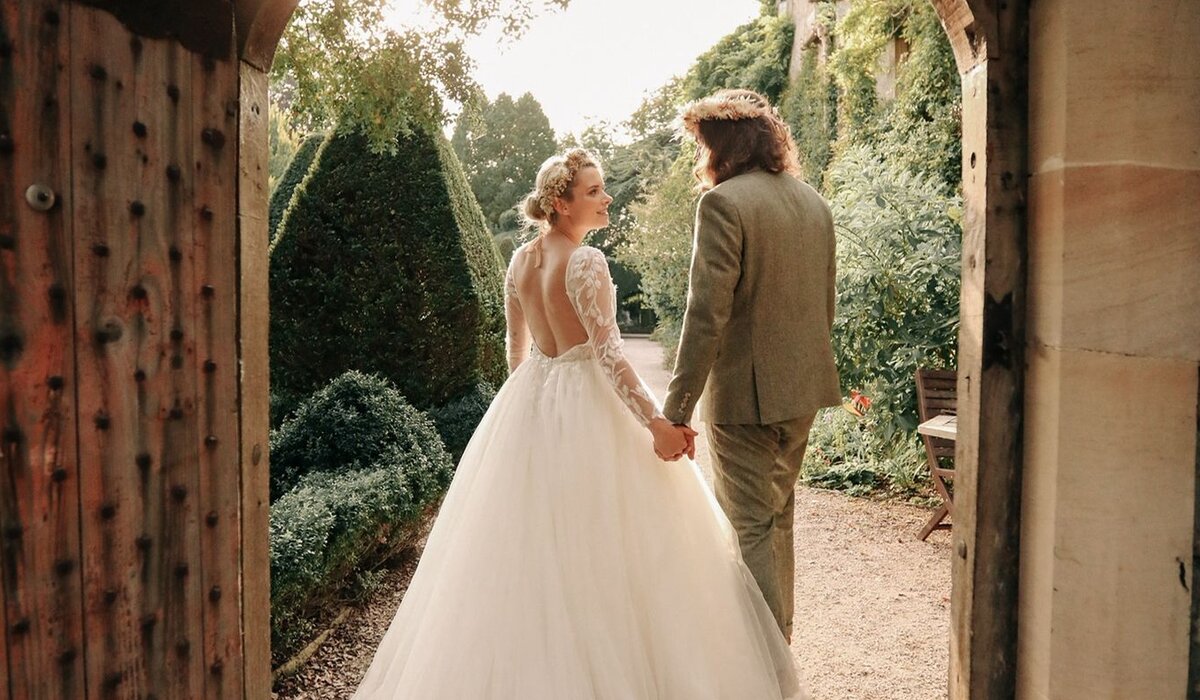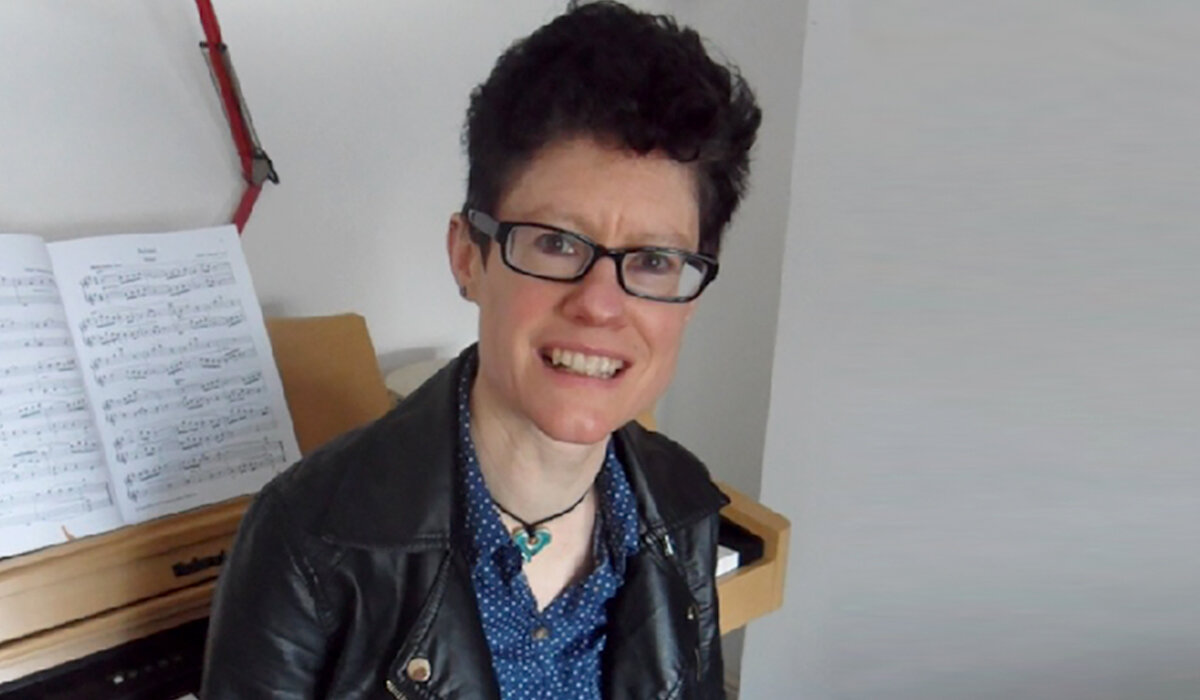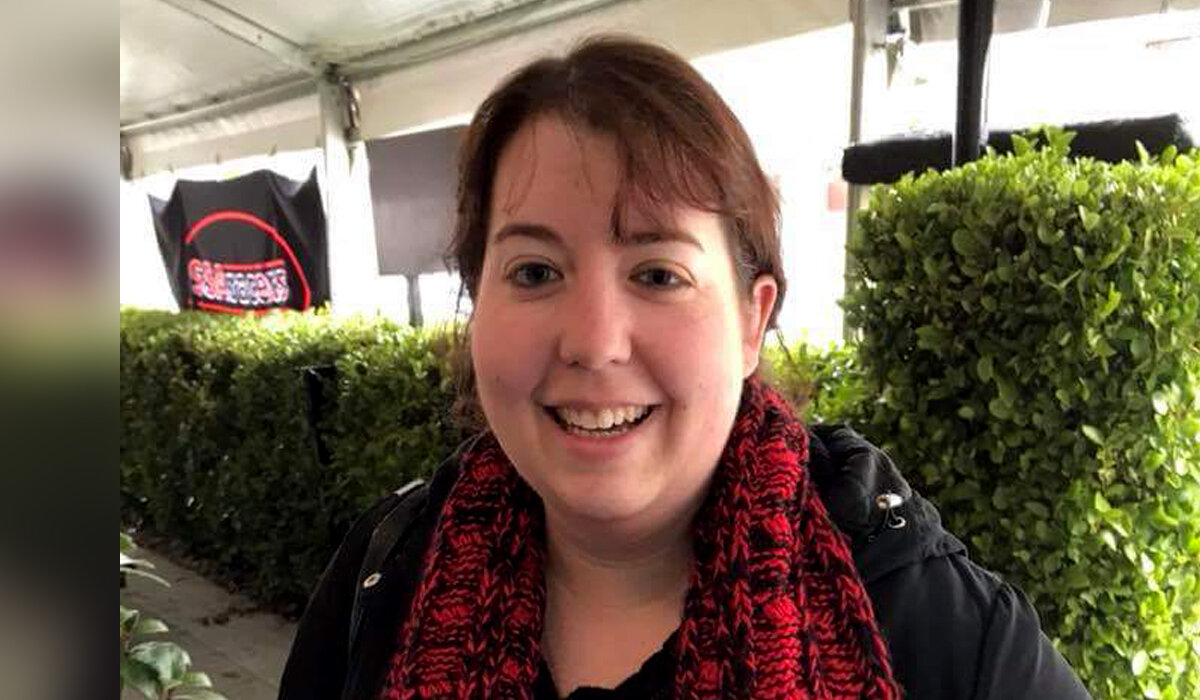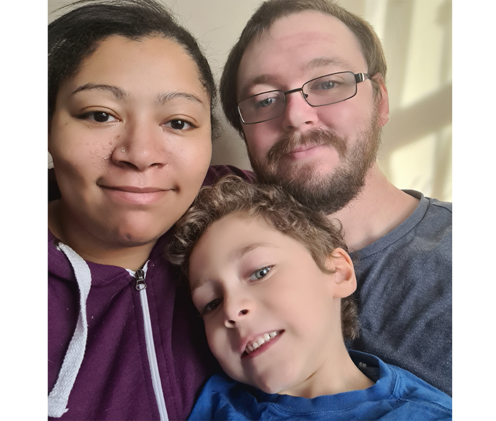
"We have quite a narrow view of what dating should look like, and a lot of unspoken social rules with relationship progression, and that can make it hard sometimes."
Ramona Jones
- on her autism-friendly wedding, and navigating relationships as an autistic person
Valentine's Day with...Ramona Jones
Romantic and intimate relationships can be complicated for autistic and non-autistic people alike! For some autistic people, meeting potential partners and navigating the messy world of relationships can be even more overwhelming. Dating can feel like a social and sensory minefield – a strange mix of ever-changing unwritten rules and strict societal expectations around gender and sexuality. With the right support, autistic people are more than capable of having fulfilling relationships that suit their needs (if that is something they are interested in).
To mark Valentine’s Day, we interviewed Ramona, autistic person, author, and social media influencer. She chatted to us about how she met her husband Aaron, the unconventional way she made her wedding autism-friendly, and her thoughts on her sensory wedding TikTok video going viral with over 16 million views.

When were you diagnosed as autistic and what is being autistic like for you?
Like many late-diagnosed autistic people, I’ve always known there was something there. I’ve always had help with things, but never had a word to summarise my needs until adulthood.
As a child I had a lot of help in school because I didn’t talk to other children or initiate friendships. I had a very attentive teacher who set up parallel play sessions with other children to help me make friends. I was also allowed to leave lessons and sit in the library when I got overwhelmed. Secondary school was a lot harder than primary school, and I was diagnosed with anorexia by age 12. Looking back, I can see clearly how my experience as an undiagnosed autistic person in the chaos of secondary school was affecting me, and how things could have been made easier.
Now I know about autism and what my needs are, my adult life is set up to not only meet my needs but also to nourish myself. I try to incorporate my special interests into each day and allow for time to decompress when I get overstimulated. It’s not always perfect but at least I understand now. In my day-to-day life I am generally very sensitive to auditory and visual overstimulation, so those are the things I try to manage. I try to manage my energy as I am prone to burnout, I’m getting better at this with every year.
Can you tell us how you and your partner met?
Aaron and I met when we were 15 years old. We are nearing 30 now so it was quite some time ago! We went to different schools and lived on different sides of the same city, so we kept in touch on social media. My close friend was dating his close friend at the time, so they helped us get to know each other.
Aaron and I were both shy and quiet, so my close friend helped us to understand each other and communicate our feelings. I loved spending time with Aaron. Although we were both quiet, it felt so relaxed and there was no pressure to speak. I felt like I could just be myself and he accepted me for it.
How did you find planning a wedding as an autistic person, and can you talk to us about the adaptations you made to make it autism-friendly?
I’ve always found weddings really difficult. I’ve not been to many, but I’ve consistently had meltdowns at each of the ones I had been to. The high emotions, lack of breaks, noise, unknown plans, uncomfortable clothing and social pressure are just too much. So, we worked backwards. We asked, ‘what has been triggering at past weddings, and how can we minimize that during our day?’.
We ended up removing a lot of traditions that weren’t essential. So, for example, we didn’t have an evening party and formal meals. We had a strict family-only guest list, and our ceremony was only about 15 minutes long. Then we asked, ‘what can we do to make the day easier?’.
We thought of a few things:

Earplugs

An outdoor picnic with familiar food
The location was in a garden that we’ve visited many times before and love.

Games to remove social pressure

A scheduled time to unwind in the garden after the ceremony

A room to escape to in case of a meltdown.
What was the reaction from your wedding guests and to your video on social media?
We let our families know that it was going to be quite casual compared to other weddings, that we were prioritising comfort over formality, and that they can leave by a specific time so I know when I can switch off mentally. Our family were actually very grateful for this. A lot of them are also neurodivergent and said they find weddings hard too. On the day they kept saying it was the most relaxing wedding they’ve ever been to. I think at first our friends were a bit upset that they couldn't be there, but after talking they understood and felt happy to support my needs.
I made a TikTok video outlining the wedding and some of the adaptations we made. I wanted to meet some other autistic people online who would understand, or perhaps people who needed some inspiration to do their wedding in their own way. I didn’t expect much from it, and within a few days it had reached millions of people. It’s reached 16 million views now, which I can’t really comprehend. Most of the reactions were beautiful - people saying they felt inspired, or they were reflecting on their own weddings that they’d done in less traditional but very meaningful ways. Even non-autistic folks were excited by the video because it could help them or a loved one to enjoy weddings. As with any content that goes viral, it met some trolls and people who didn’t understand. So, I took some time away from my phone and stopped reading the comments.
There are still misconceptions in society about what it means to be autistic, including myths about autistic people not wanting to be in relationships. What do you say to people with beliefs like this?
The first thing I would say to those people would be to reiterate that autism is a spectrum. We are a diverse group of people who all have different wants, needs and desires. I’ve seen in myself and some of my autistic friends that we can be immensely passionate people. When we like something, we can be very engrossed in it or fulfilled by it, and this can be a great quality in relationships because we have a lot of love.
Many of us are honest communicators and are understanding, because we have experienced what it's like to feel left out and we don’t want others to feel that way. I think we just need a worldview that's more inclusive of different relationship styles. We [as a society] have quite a narrow view of what dating should look like, and a lot of unspoken social rules with relationship progression, and that can make it hard sometimes.
"We have quite a narrow view of what dating should look like, and a lot of unspoken social rules with relationship progression, and that can make it hard sometimes."
Are you celebrating Valentine’s Day this year? If so, what are your plans to mark the occasion?
We will probably just have some nice food and a cosy evening in. We don’t do much in the way of celebrating, usually because places can be so busy and loud. But we do appreciate our time together and enjoy one another's company, which I suppose is what it’s all about really.
Do you think being autistic has an impact on the way you approach your marriage?
I think so. One thing I’ve noticed is that being autistic can mean you question social structures or traditions and can be more open to rejecting or updating them, which I think is great. I didn’t like a lot of the assumptions that came with getting married, I didn’t want to change my surname and I wanted a prefix that was more in line with my feelings around gender and sexuality, so I used Mx. I didn’t see marriage as a big deal. The things that are more important to me are how we enjoy our time together in the day-to-day quiet moments.
However, as marriage was important to my partner, I wanted to honour that for him. It was nice because we both had ways to make sure the other was having their needs met, and we worked on creating a day that suited both of us.
"One thing I’ve noticed is that being autistic can mean you question social structures or traditions and can be more open to rejecting or updating them, which I think is great. I didn't like a lot of the assumptions that came with marriage."

Do you have any advice for other autistic people who may be planning a wedding day and are perhaps feeling overwhelmed by the scale of the task?
I would say firstly that it’s you and your partner’s day, so don’t be afraid to put your needs first. The most important thing is having a day that you find meaningful and manageable, so if you need to do things a bit differently, that’s ok.
There are options to do things on a smaller scale, like getting married in a registry office and having a small celebration, or eloping together and enjoying your partner's company. Although it can be hard, try not to focus on mainstream expectations for weddings and instead think about what brings you comfort and joy, and how those things might be worked into your wedding.
Making lists on paper can help you visualise all of the parts together, and you can see clearly what needs to be organised, and what is already done. If you’re working with a wedding planner, be honest with them about your needs so they can create a wedding that works for you.
Find out more
- Watch Ramona's viral wedding video on Tik Tok here.
- Meet like-minded people through our online community.
- Read more Stories from the Spectrum here.

Similar stories

"It's great that Pride events exist, as they help LGBTQ+ people see they are not alone."
Madge Woollard
- on celebrating Pride as an LGBTQ+ autistic person
Read more

"I have a specific set of things I take to matches, as they ease my anxiety levels by being familiar and trusted."
Helen Ellis
- on being an autistic rugby fan
Read more

"Communication and empathy were huge issues when Daniel and I first got together seven years ago."
Kerise Vowles-Myers
- on autism and relationships
Read more

The Spectrum magazine
Explore one of the UK's largest collections of autistic art, poetry, and prose. The Spectrum magazine is created by and for autistic people, and is available both online and in print.
Read the Spectrum





You are not alone
Join our community
Our online community is a place for autistic people and their families to meet like-minded people and share their experiences.
Join today